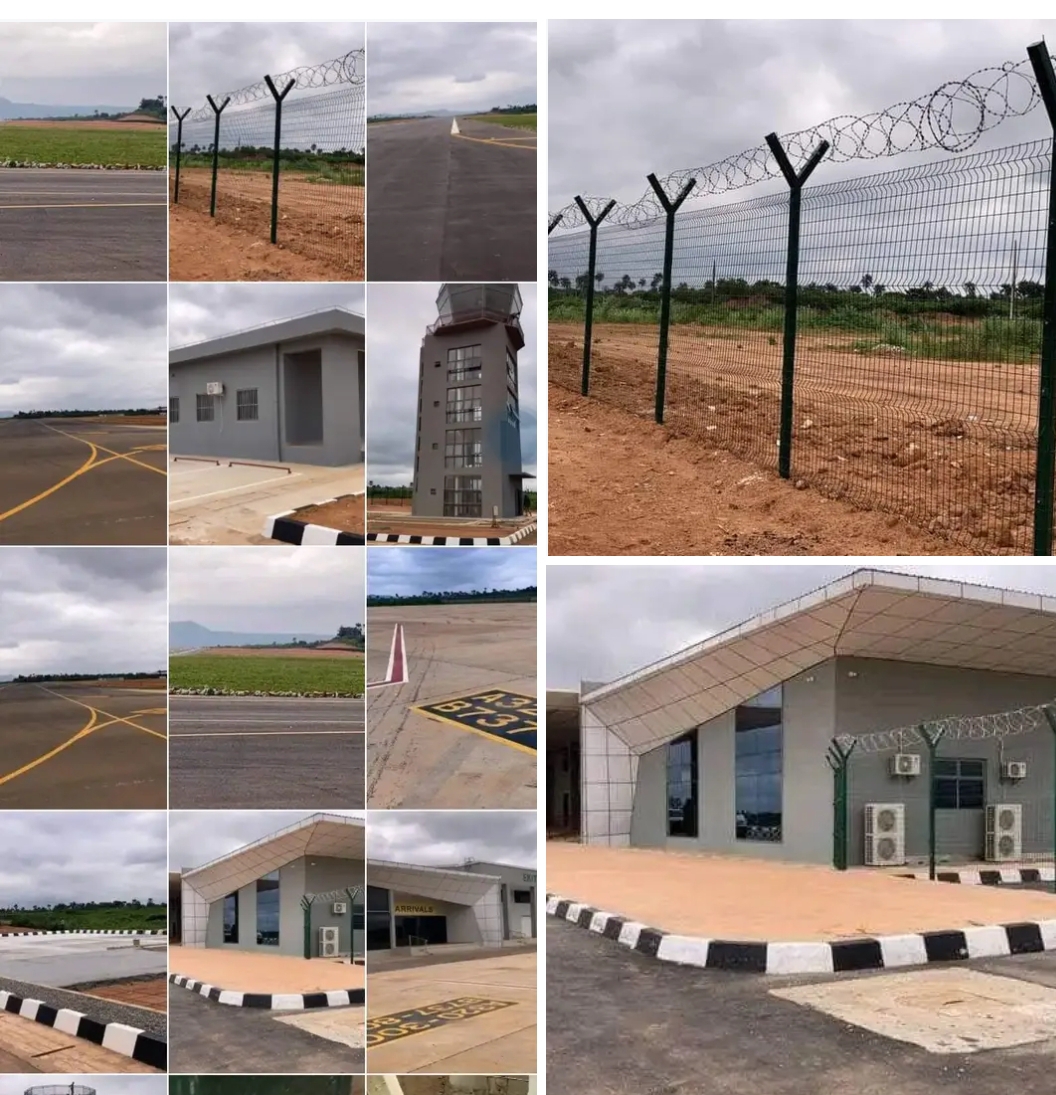By Adeoye Aribasoye
To the critics of the cargo airport initiated by Governor Kayode Fayemi in Ekiti State, it’s time to reconsider the monumental impact this project could have on our landlocked state. Establishing an airport is not just about aviation; it’s about unlocking opportunities, enhancing connectivity, and fostering growth that we desperately need.
As a landlocked state, Ekiti faces unique challenges in accessing markets and resources. An airport will not only facilitate trade but also boost medical tourism, particularly with the exceptional services offered at the Afe Babalola University Multi-Purpose Hospital. Imagine the possibilities for students and professionals traveling easily to and from the Ekiti Knowledge Zone and innovation hub, creating an environment ripe for creativity and collaboration. As said by Eleanor Roosevelt, “The future belongs to those who believe in the beauty of their dreams.”
Part of the concerns raised against the project was issue of Ado – Akure road. It is important to state that an airport in Ekiti and reconstructing the Ado-Akure road are not mutually exclusive; both projects are vital for our development. If we assume that the airport cost approximately N20b, it is still significantly less than the N93 billion allocated for the Ado-Akure road reconstruction, which is still likely to see cost increases due to economic factors from the 2022 estimate when $ was N450 to now when it is N1600. Remember Governor Fayemi worked tirelessly to secure funding through the African Development Bank, it was his collaboration with the likes of Mele Kyari of NNPC, Mohammed Nami of FIRS and the then Minister of Works, Tunde Fashola that ultimately made the road’s reconstruction possible.
While the Ado-Akure road is indeed crucial, it’s important to recognize that the average lifespan of such roads is only 15-20 years. In contrast, the airport infrastructure will last much longer and provide long-term benefits, positioning Ekiti as a hub for trade, tourism, and innovation for generations to come. Without any scintilla of doubt, the airport infrastructure will provide a lasting legacy for future generations. We should remind ourselves of Akure Airport, built in 1981, which has not received any significant upgrades since its inception, yet planes have been landing there consistently. The cost of the Ekiti Airport, at roughly $12 million, makes it one of the most affordable airport projects globally. If we delay this initiative, costs could soar, potentially exceeding N60 billion due to inflation and rising material prices—an opportunity that would likely elude us.
Also, when some Nigerians say there are too many airports in Nigeria, in fact I believe we don’t have nearly enough. A quick google search will show that Nigeria has one of the lowest number of airport per population in the world when you compare with the US that has 14,000 plus airports, Brazil with over 4,000, Mexico with over 1400 and Indonesia with over 700 just to mention a few.
Moreover, the desirability of the airport extends beyond immediate benefits. An airport serves as a magnet for further developments, as evidenced by the establishment of a Nigeria Air Force base in Ekiti. Without the investment in the airport, the NAF would likely not have chosen to set up a base here. This exemplifies how PREPARATION meets OPPORTUNITY.
On the cost-benefit analysis, it’s clear that Ekiti did not suffer in the short term due to the airport’s construction. Governors Fayemi and Oyebanji prioritized social investments and human capital development, ensuring salaries and pensions were consistently paid. Both administrations implemented free education and health programs, while Fayemi introduced social security benefits for the elderly and launched initiatives like the youth in commercial agriculture scheme and the youth volunteer scheme, all while developing roads, water, and power infrastructure.
Finally, all Ekiti Governors, from Gov. Segun Oni to Gov. Oyebanji, regardless of their varying political affiliations, recognized the significance of establishing the airport as a way to connect Ekiti to the broader world. Praise is due to those who courageously realized this shared aspiration for the state.
Those who fail to grasp this comprehensive approach may remain critical, but posterity will vindicate those who courageously and selflessly propelled Ekiti beyond pedestrian politics.
It is time to champion this vision together!

